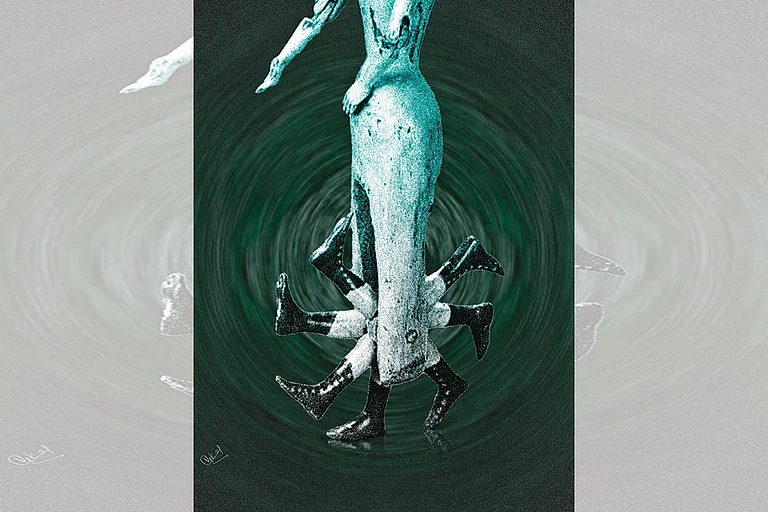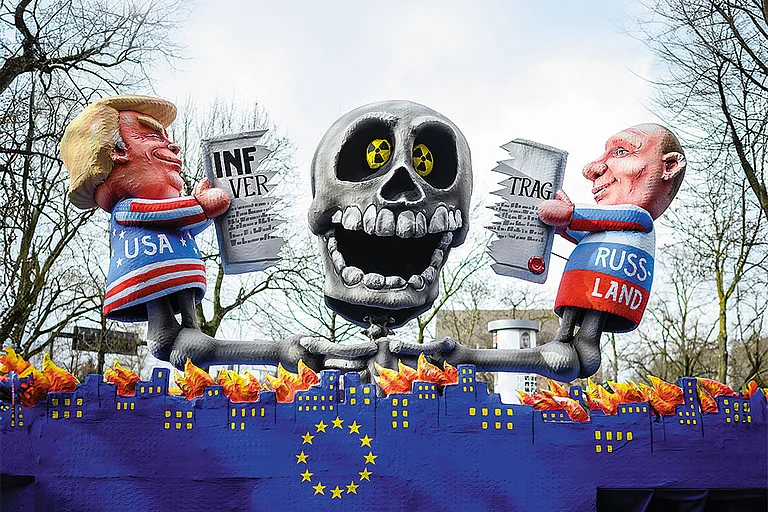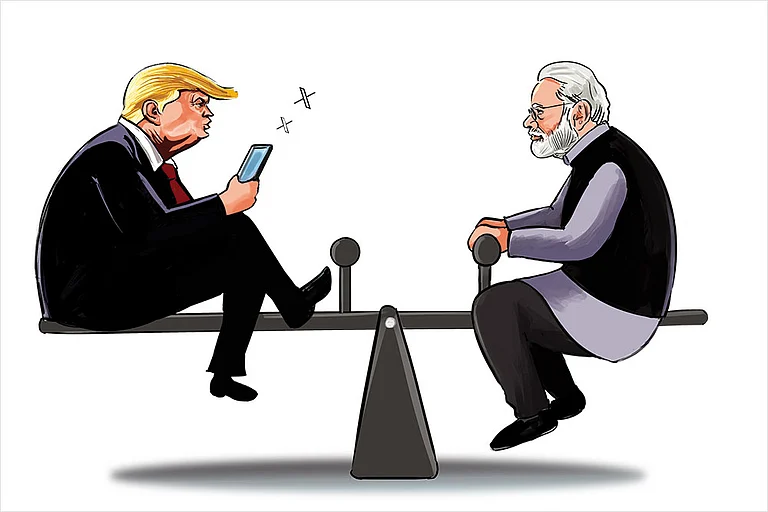Sanctions are a common tool of American diplomacy. It is almost instinctive for American leaders to slap sanctions on foreign governments to bring them to heel. Successive administrations in the US have resorted to sanctions against so-called “rogue” regimes.
Is It Time For The US To Rethink Sanctions?
Sanctions as a political tool against major economies have never achieved their aim unless backed by the UN. Yet even the UN sanctions have not always worked.
Many countries have learnt to work around them. The rise of China as an economic powerhouse and the fact that countries can turn to Beijing as an alternative have considerably blunted the impact of sanctions on Russia, Iran and North Korea. There is a debate in the US about the efficacy of sanctions.
The use of sanctions was popularised in modern times by US President Woodrow Wilson when he promoted the idea to the League of Nations in 1919 and to the US Congress.
"A nation boycotted is a nation that is in sight of surrender. Apply this economic, peaceful, silent, deadly remedy, and there will be no need for force," he said. American lawmakers were not convinced, refusing to ratify U.S. membership in the League of Nations, the precursor to the United Nations. But Wilson라이브 바카라 idea of economic sanctions became a handy tool for successive US administrations.
In the 1950s, as tension escalated in the Korean Peninsula, the US sanctioned North Korea. Cuba, the little Communist outpost in America라이브 바카라 backyard, was seen as an enemy of the US, after charismatic Communist leader Fidel Castro overthrew the corrupt government of Batista that Washington backed. Cuba has been under sanction since February 1962, with an embargo on trade and all economic activity.
Iran has been under crippling US sanctions since the Iranian Revolution of 1979. Iran has also survived over 40 years of sanctions. The US also sanctioned Bashar al-Assad라이브 바카라 Syria, and though he has fled the country, the sanctions have not yet been lifted as Washington is closely watching events unfold in Damascus. Russia is again under all-encompassing sanctions since the war in Ukraine in 2022. Vladimir Putin라이브 바카라 country has been hit by nearly 13,000 sanctions by the US and Europe working in tandem. Joe Biden라이브 바카라 effort was to ensure that Putin could not finance the war. The sanction regime was comprehensive, including the freezing of all Russian assets and gold reserves in Western banks to limit Moscow라이브 바카라 ability to conduct business in both dollars and euros abroad. Cutting off Russian banks from the interbank messaging system SWIFT is a severe blow to conducting business outside Russia. However, it proved counterproductive as it forced Vladimir Putin to turn to China라이브 바카라 Xi Jinping for assistance. It helped to get the former Communist rivals together and led to Moscow라이브 바카라 dependence on China.
“Overall literature and existing research on sanctions questions its efficacy. The one time that sanctions were successful and brought about change was that on Apartheid South Africa. That is also because the entire world was on the same page," says Sanjay Baru, senior journalist and former media adviser to Manmohan Singh. “When sanctions are imposed by one country or a limited number of like-minded nations, they don’t work,” he adds. When sanctions are mandated by the United Nations, every country falls in line. Not otherwise.
North Korea, Cuba, Iran and now Russia prove the point. Despite overwhelming sanctions on Russia by the US and its allies, Russia has not been forced to give up its military adventurism in Ukraine. Russia has worked with China, Iran, India and most of the global south.
“China라이브 바카라 economic rise has blunted the impact of US sanctions, making them much less effective," says retired ambassador Dilip Sinha, who has written a seminal book on the UNSC and its stranglehold by the Permanent Five. “The sting has gone out of sanctions as countries like Russia and Iran, as well as North Korea have an alternative in China. Indeed, sanctioned countries operate under a different ecosystem that can survive without America and Europe,' adds Sinha.
Besides comprehensive sanctions against countries that include trade embargoes, the US also sanctions specially designated individuals, businesses, groups and drug traffickers. Sanctions that are mandated by the United Nations are followed by most countries. After the 9/11 attacks on the US, the UN imposed sanctions targeting terrorist organisations as well as individuals. Al Qaeda and Osama Bin Laden had UN sanctions on them. So did ISIL (Islamic State of Iraq and the Levant), which cropped up in Iraq after the civil war following the American invasion.
Sanctions are also used by the US as leverage in pressurising governments on human rights. The Taliban regime in Afghanistan is under American and western sanctions for its scandalous treatment of women. Since securing the release of a US citizen from the Taliban last week, Washington has removed the prize money or the bounty for the capture of three top Taliban leaders, including Interior Minister Sirajuddin Haqqani, his brother and a cousin. The Haqqani network is responsible for several terror attacks on US and NATO forces during the two decades when Americans were in the country. The Haqqani brothers were also responsible for several attacks on Indian interests, including the bombing of the embassy in Kabul, where a foreign service officer and the defence attaché were killed.
India And US sanctions
Countries like India respect sanctions that have the UN mandate, not one imposed by a single country like the US. Yet because of America라이브 바카라 overwhelming economic clout, its stranglehold over the world라이브 바카라 financial institutions and a strong dollar that is internationally accepted as the currency of world trade, the US can bully private businesses to toe the line.
The case of India and the Chabahar port is one example. New Delhi signed an agreement with Iran in 2016 to develop part of the Chabahar port and industries in the Chabahar special economic zone. The $8 billion deal would also help India in trade with Afghanistan and open the route to the larger Central Asian market. Sending goods by sea, and then by road to Afghanistan that adjoins Iran, and avoid passing through Pakistan. India built a road to carry goods by land to Afghanistan from the Iranian port. Pakistan does not allow India passage through its territory. But American sanctions on Iran have led to constant delays in implementation. Neither Indian nor any other Western business houses are interested in supporting the programme because of American structures that anyone doing business with Iran would be cut off from the US market and American financial institutions. No company in the world wants to take the risk. So Chabahar has dragged on with some progress but is nowhere near its true potential. Chabahar, which at one point looked like a brilliant strategic move, has largely remained a non-starter.
Nuclear Sanctions
India also faced sanctions after both the Pokhran nuclear tests in 1974 and 1998. The world came down hard on the Vajpayee government when he conducted India라이브 바카라 second series of nuclear tests a few months after taking oath. US, UK. Japan and Canada.
Bill Clinton, the then US President, led the charge. China was vociferous in its condemnation. Britain라이브 바카라 Tony Blair was equally bent on punishing India. With the EU summit scheduled to be held in the UK that summer, Blair worked at organising EU sanctions against India. The US and the West insisted that India “cap, roll back and eliminate” its nuclear program. But France pulled back, saying that countries could do so in their bilateral capacity and not the EU as a group. France anyway did not believe in sanctioning India. Vajpayee라이브 바카라 NSA Brajesh Mishra flew to Paris as the PM라이브 바카라 special envoy and met with President Jacques Chirac. France showed an understanding of New Delhi라이브 바카라 security concerns, and since then relations with France have blossomed. Strategic talks began soon afterwards. Bill Clinton, while allowing the sanctions against India라이브 바카라 nuclear establishment to continue, opened negotiations with India. The US Secretary of State Strobe Talbott and Vajpayee라이브 바카라 foreign minister Jaswant Singh began a series of talks that paved the way for the India-US civil nuclear agreement between former prime minister Manmohan Singh and President George Bush.
The Vajpayee government that was initially worried about the sanctions soon realised that India could ride through without much problem. Dual-use technology, as well as all high-tech equipment, was denied to India. All that, however, is past history, as India-US relations blossomed after the civil nuclear deal. Ends.


